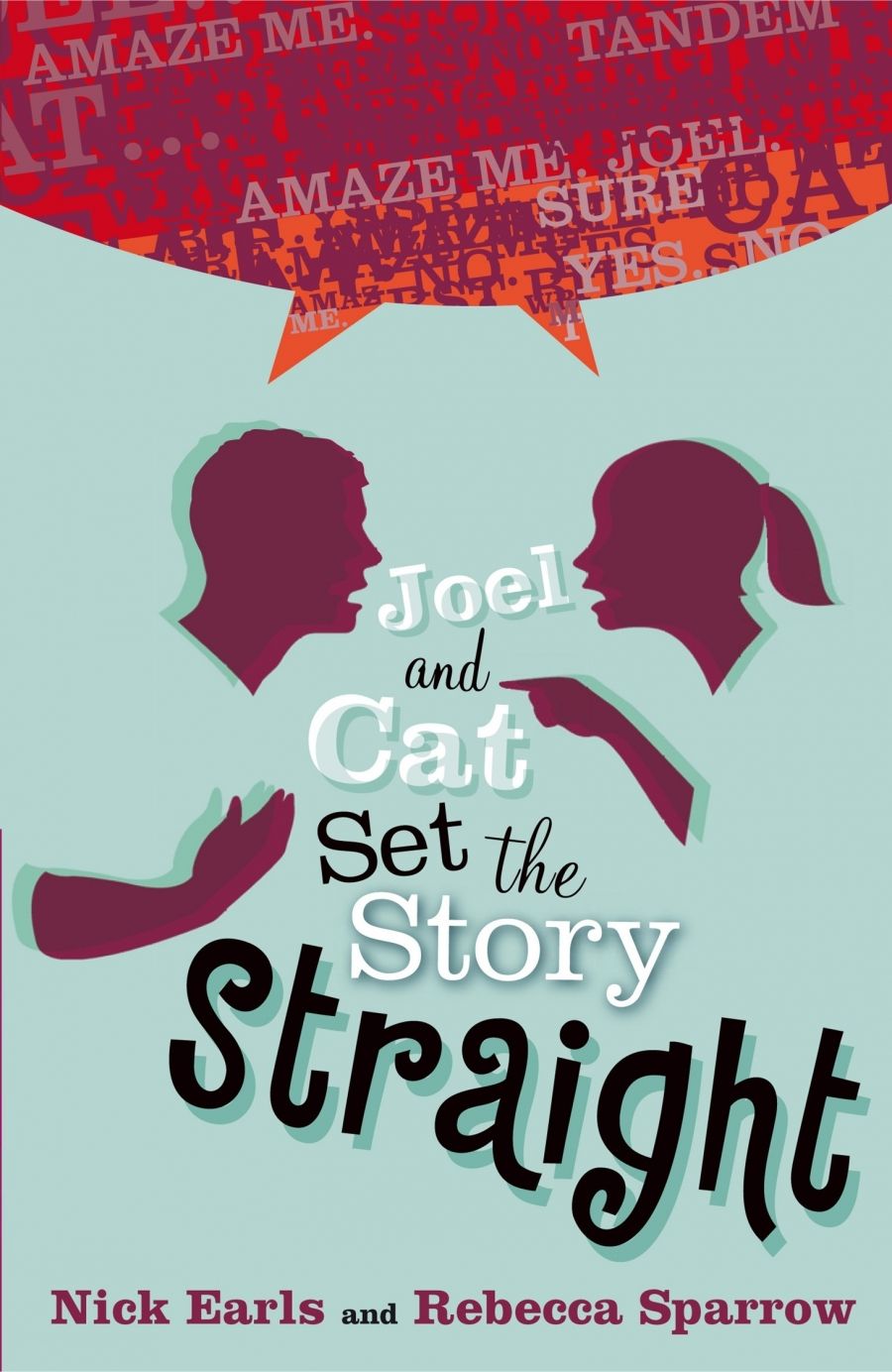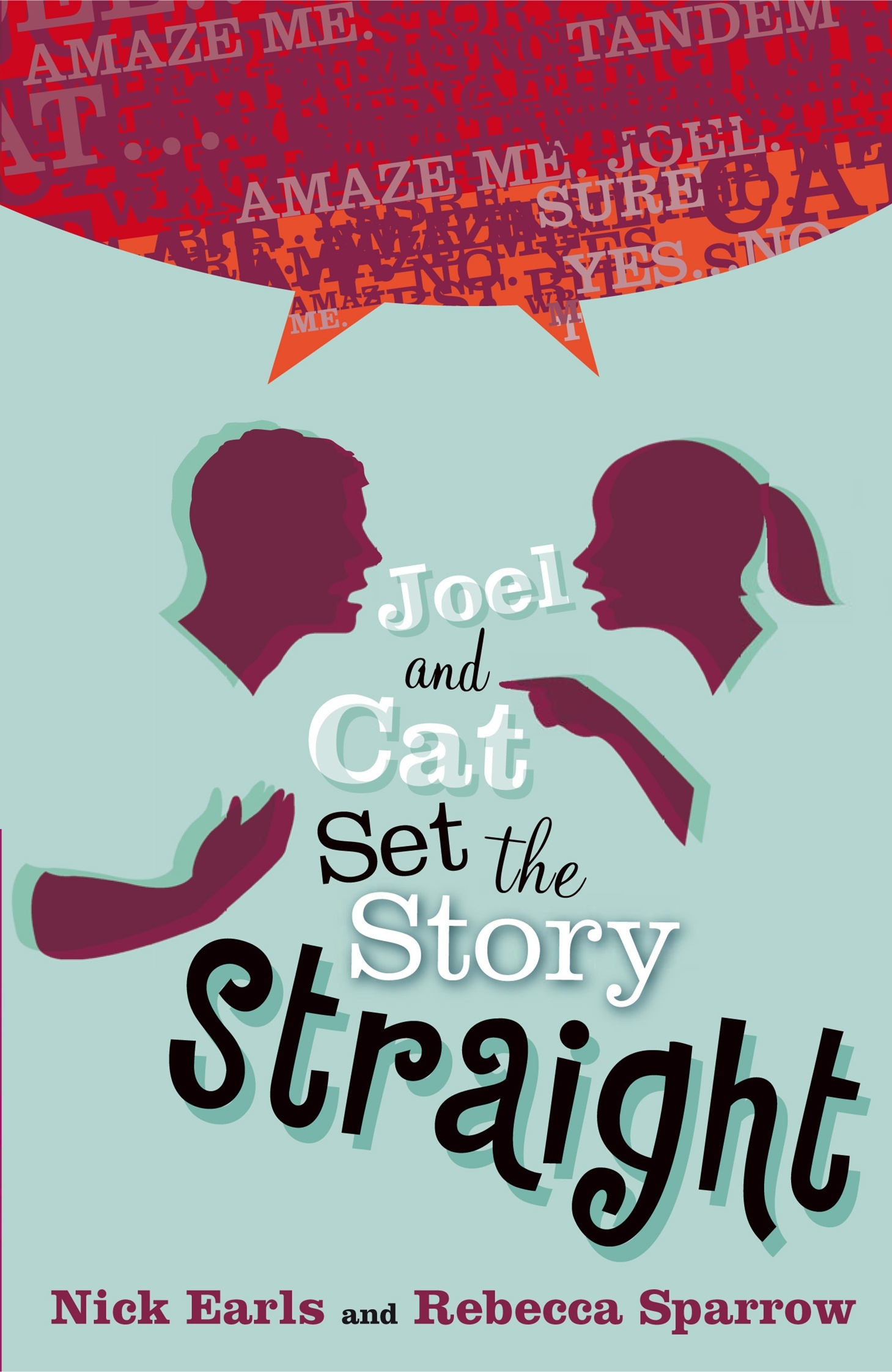
- Free Article: No
- Contents Category: Reviews
- Review Article: Yes
- Article Title: Austenitis
- Online Only: No
- Custom Highlight Text:
Does any male under thirty not employed in the English department of a university really like Jane Austen? At least Shakespeare wakes you up now and then with a spot of violence and bloody murders.
This literary gender divide is at the heart of Joel and Cat Set the Story Straight (Penguin, $19.95 pb, 244 pp), Nick Earls and Rebecca Sparrow’s funny story about a male and female student writing a story together, inspired, as an author’s note informs us, by an Internet story about a male and female student writing a story together. Very metafictional.
- Book 1 Title: Joel and Cat Set the Story Straight
- Book 1 Biblio: Penguin, $19.95 pb, 244 pp
- Book 1 Cover Small (400 x 600):

- Book 1 Cover (800 x 1200):

Joel and Catriona, paired by email in a Year 11 English Extension assignment to co-write a story, produce a paragraph a day for a fortnight. In the best romantic tradition, they are hostile partners, divided by a misunderstanding that serves to keep them at loggerheads until almost the last page. Nor do their different literary styles make the task any easier. Cat kicks off with a languid opening in which her heroine, Elizabeth Benetton, wakes up and sighs heavily; Joel shoots back an action-packed paragraph in which his hero Max ‘Mad Eyes’ Eislander, an escapee from a North Korean torture chamber, rockets to earth with an HK Xm-8 assault rifle strapped to his back and revenge in his heart. And so the story progresses, in all its improbable details, with Joel aping Matthew Reilly and Cat channelling Jane Austen via Jackie Collins.
This in itself would be funny enough, but the humour runs layers-deep in this clever novel, with its vivid characterisation, snappy cultural references, laugh-aloud dialogue and hilarious set pieces. Metafiction, however, can be tricky. Cat prides herself on her English skills and scans restaurant menus looking for mistakes (‘I guarantee you, there’s always at least one’), but she calls her male protagonist Christopher on Tuesday and Charles on Thursday, and describes a cool-headed friend as not being ‘phased’. Now are these deliberate authorial slips aimed at bringing the arrogant Cat down a peg or two, or a lapse in editing? You be the judge.
Four different readers, variously aged between sixteen and sixty-five, have assured me that Joel and Cat Set the Story Straight is the funniest book they have read in years. The same cross-generational appeal applies to Michael Gerard Bauer’s Don’t Call Me Ishmael (2006) and now its sequel, Ishmael and the Return of The Dugongs (Omnibus Books, $17.95 pb, 295 pp).
The unfortunately named Ishmael Leseur and his pals are now in Year 9 at St Daniel’s, and the hormones are starting to kick in. Inspired by Miss Tarango’s Shakespeare readings, the reluctant Ishmael is eventually persuaded by his extroverted but poetically challenged mate Razza that the way to the divine Kelly Faulkner’s heart is through poetry. Razza comes up with a sonnet called ‘Hot or What!’ (‘Your bod is hot but you are cool / You’re deeper than a swimming pool’) that contains, as its author boasts, the requisite number of ‘similarities and a rhyming cufflink’. Even school bully Barry Bagswell is secretly writing verse and revealing another side of his aggressive character. Ishmael struggles to overcome his social ineptitude and his feelings of inadequacy in the competition for Kelly’s heart. Debating is back on the school agenda, powered along by the oratorical genius of James Scobie, and the witty lines come thick and fast.
Bauer gives us the same mix of ingredients that made the first book so popular, and adds a new sub-plot: Ishmael’s dad is trying to reform his old 1980s rock band, the Dugongs, for a reunion concert. Various obstacles are overcome, but at the eleventh hour things go pear-shaped, only to be saved by Razza, who suddenly exhibits a hitherto unmentioned talent that he has apparently been hiding from his close friends for years. This sneaky little bit of plotting does make for an upbeat ending, but in future titles – there will surely be more of Ishmael – Bauer will have to keep a restraining hand on the larger-than-life Razza.
Jane Austen pops up again in The Truth About Emma (Hachette/Lothian Children’s Books, $17.95 pb, 216 pp), but no Janeite could possibly welcome the association. I don’t know what shocked me more: that the novel is written by Gary Crew, that it bears a children’s book imprint or that the publisher is recommending it for readers aged twelve-plus. The story is narrated by a vain, egotistical 27-year-old journalist called Rafael Innocenti as he interviews teenage tabloid star Emma Burden, who has sold her ‘true’ story of her affairs with her university lecturer and a married police officer to his newspaper. Innocenti himself falls under her spell as his relationship with his partner suffers – or, as he would put it (and he does, often), his dick fails to jerk, shift or bounce. There is a lot of such talk, and more gratuitous obscenities than I have ever seen in a book supposedly for young readers. Despite being a journalist, Innocenti knows only two words to express surprise or frustration, both of them containing four letters, and they are repeated sometimes four or five times on a page. Emma, Wuthering Heights and Lolita may have something relevant to say about power relationships, but their referencing here mainly serves to show up the shallowness of the plot and its unappealing protagonists. This is Gary Crew a long, long way from his best.
I hardly expected to meet Jane Austen for the third time, much less in a story that takes Ned Kelly’s life as its template, but there she was in Tim Pegler’s first novel Game As Ned (Angus & Robertson, $14.99 pb, 209 pp). Living in her aunt’s grand boarding house will make her feel like ‘a character in a Jane Austen novel’, thinks sixteen-year-old Erin Murphy. The daughter of Irish battlers who have fallen foul of the law, Erin hasn’t had many Austen-like moments in her life, and neither has Ned, an autistic mute with an obsession for bushrangers. Autism was hardly understood in the 1970s, and although his grandfather does his best, Ned lives in a world of silence and rejection – until he meets the garrulous Erin, with her own history of injustice and alienation.
Just as things are improving for both of them, they go hideously wrong when Erin is raped by a drunken police trainee and Ned belatedly defends her honour. Those who know something of the Kelly story will have fun following the subtle and not-so-subtle parallels, but any modern retelling is going to run into trouble when it comes to Ned Kelly’s last stand. Pegler does his best, but it is hard to believe that any disturbed teenager who emerges from hiding after days on the run, waving a gun and wearing corrugated iron armour and helmet, is going to be treated as sympathetically as this one, especially since, up to this point, there has hardly been a positive portrayal of a Victorian policeman. Luckily, there is an enlightened woman police officer to ensure justice. Ned Kelly should have been so lucky.
I couldn’t help thinking how much Nick Earls’s Joel would detest Alyssa Brugman’s Solo (Allen & Unwin, $16.95 pb, 180 pp) and how it would reinforce all his prejudices about female authors and their plot-challenged novels about heroines who do a lot of ‘deep deep penetrating thought’. Certainly, a synopsis of Solo doesn’t promise much more: teenager in a rehabilitation wilderness camp spends twenty-four hours alone in the bush while reviewing her troubled life. The fact that it does offer more is a tribute to Brugman’s skill in taking the routine stuff of so many tabloid news stories and ‘brat camp’ reality television shows and giving them a fresh twist by getting inside the head of fifteen-year-old Mackenzie and relating her appalling story in a vivid and compelling voice that never descends into sensationalism. The clever structuring of the plot ensures that, although it is low on action, narrative suspense is sustained by the slow release of information and by the reader’s growing apprehension about Mackenzie’s solo stint. No Jane Austen this time, but plenty of Billie Holiday.
Joel would undoubtedly prefer Marty’s Shadow (Omnibus Books, $17.95 pb, 229 pp). The masculine version of Solo, John Heffernan’s dark story about a teenager similarly plagued by recurring dreams and images of a half-remembered domestic tragedy is full of violence, guns and pig-hunting. Like Brugman’s protagonist, Marty has a sense of guilt connected to the fate of his family, and plenty of aggression, but for this reader the lying, thieving, devious Mackenzie is a more convincing product of her environment than the sensitive, generous, tree-loving Marty. Classroom discussions of Romeo and Juliet and Hamlet are set against Marty’s budding romance with Nariah, the daughter of persecuted Iranian refugees, and his growing realisation that he, like Shakespeare’s prince, is a ‘prisoner of his own mind’. Heffernan is a fine writer, but ultimately the novel struggles under a heavy load of shadowy symbolism and melodrama, and a surfeit of flashbacks and dream sequences. Despite the epilogue’s vision of a rosier future, many readers may find the ending upsetting.


Comments powered by CComment